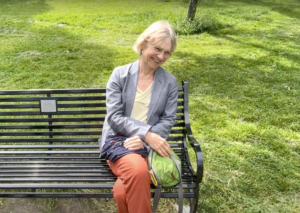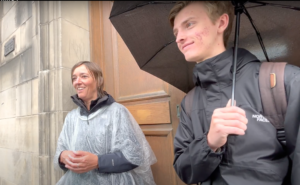Understanding how a countries governmental policies evolved requires and in depth look at the countries historical perspective and outlooks. In this article I discuss the realizations that community interviews gave me and how I’m applying the insight to our class and life beyond school.
I have always had an innate sort of wanderlust that was engrained in me as a child through a healthy amount of road tripping, hiking, biking, amusement park going, etc. But COVID-19 changed my families “off the cuff” style to a mundane routine. Despite all the years of international travel, when faced with the opportunity to join this study abroad, I was extremely concerned about how it would challenge my routine life. This program challenged me is so many ways. More than anything, our group interviews challenged my view of public healthcare. A public system is not necessarily infallible, and a privatized system is not necessarily insidious in nature. Management and cultural context are key to the success of a healthcare system.
Before I came to the UK, I though the public NHS was ideal and privatized care was extremely detrimental to all in the system except the wealthy. After conducting our interviews about the public NHS and the Netherlands healthcare system (privatized but compulsory), I realized I was lacking in my understanding. The NHS can be very inadequate when doctors don’t know how much they are spending and the system is too overwhelmed to treat people, especially with mental illness, before its too late. Additionally, the private Dutch system seems to be almost perfected despite its privatization. The difference is in management and culture. If there are adequate regulations in place, a private system can be fast, equitable, and available to everyone (such as in the Netherlands). But the Dutch and UK populations also have a cultural mindset that using the public healthcare even if they can afford a private physician contributes the greater good of the country by boosting demand and therefore investment in the system.
These interviews showed my that healthcare design is extremely dependent on the “personality” of a population. Americans subscribe to ideals of self-reliance. I see that socializing healthcare in the U.S. may not work at all if we cannot change our current cultural outlook of independence showing power and reliance showing weakness.
Here are some shots of the most impactful interviewees I talked to.



